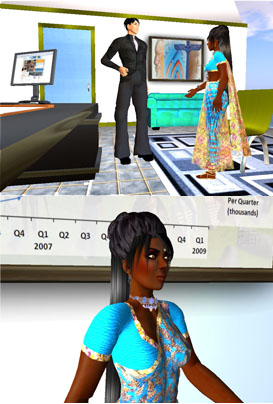Cultural considerations
New Zealand has a very diverse society and is made up of a huge mix of different cultures. If we do not appreciate and understand cultural diversity we may end up with poor communication and mixed messages in an interview situation. It would be sad to be rejected for a job because you and/or the interviewer offended each other on a cultural level.
Here are some possible problem areas and ways to overcome these problems:
Eye Contact
In most Western cultures eye contact is a sign of respect. However, in other cultures the opposite is true, eg. it is not respectful to ‘eyeball’ a Māori kuia or kaumatua. If this may cause a problem, the interviewer and interviewee could sit at 90 degrees from each other. This lessens the opportunity for constant eye contact.
Shaking Hands
Shaking hands is a Western custom. In other cultures, other forms of greeting are more natural, eg. bowing in Japan. It is a good idea to anticipate a handshake and follow the interviewer’s lead.
Head Height
In Western cultures it is respectful to wait until you are asked to take a seat. In many Pacifika cultures, a sign of respect is to place yourself at a level lower than the interviewer. Again, follow the interviewer’s lead and wait until you are asked to take a seat.
Interpersonal Space
In New Zealand, Pakeha have more need for personal space than Māori or Pacifika. Other culture groups feel comfortable with an even larger area of personal space, eg. Middle Eastern men and women. Those who come from country areas require more personal space than those from city areas. In an interview, allow more personal space if you are directly opposite another person, and watch for nonverbal cues. You can always take a step backwards if you feel uncomfortable.
Time
Some cultures value punctuality and time limits, while others value relationships and have a more relaxed attitude towards time. Always be on time for an interview and be patient if you are asked to wait.
The “getting-to-know-you”, small talk period of the interview will vary in length depending on the culture of the interviewer. Always follow the lead of the interviewer, even if this is not comfortable for you.
Some cultures feel it is essential to talk quickly and keep up a constant barrage of questions while others prefer a slower pace and allow more time for answers. Some feel comfortable with periods of silence while others interpret this as a lack of the ability to answer, ignorance or doubt. If you feel the interviewer is rushing and you need time to think before answering, say something like, “Could I please have a minute to think about that question?”
Agreement/Disagreement
In some cultures silence means disagreement, in others agreement. In Pacifika cultures raised eyebrows are a sign of agreement. In some Eastern European cultures moving the head backwards indicates disagreement, while this would be interpreted as agreement by those from other Western cultures. Try not to rely on a single gesture and always check if you are not sure you understand.
Dominant Hand
Some cultures use both hands with equal freedom, but other cultures are sensitive to the use of one hand or the other. Try to use the right hand to pass papers in an interview, even if this is not of great importance in your culture.
